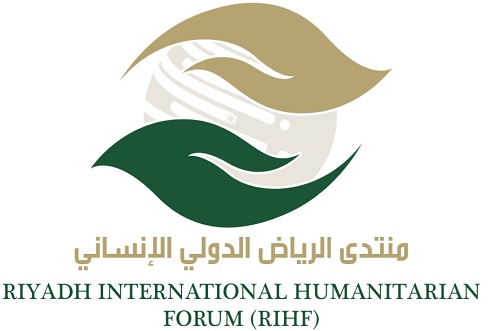Call for Participation
Application Deadline: 15 January 2023
Forum Date: 20-21 February 2023

About the Forum
Under the patronage of the Custodian of the Two Holy Mosques, King Salman bin Abdulaziz, the King Salman Humanitarian Aid and Relief Centre (KS relief) organizes the Riyadh International Humanitarian Forum (RIHF) every two years in the Kingdom of Saudi Arabia. The RIHF is attended by humanitarian leaders, donors, practitioners, researchers, and others to promote dialogue on legislative, informational, and logistical mechanisms for delivering humanitarian aid. The forum also addresses humanitarian challenges and seeks innovative practical solutions in accordance with international humanitarian principles and standards and in line with the achievement of Sustainable Development Goals (SDGs).
The 1st and 2nd RIHFs have addressed some of the world’s most pressing global humanitarian challenges and have presented best practices from leading humanitarian actors. The 3rd RIHF will continue the discussion under the theme “Evolving humanitarian needs and response” to provide an opportunity to reflect on global humanitarian practices and policies, while also highlighting practical solutions and successful response modalities from the field to drive meaningful changes and to deliver assistance more efficiently.
Objectives and outcomes of scientific sessions
The general objective of scientific sessions is to identify innovative solutions for humanitarian challenges. The scientific sessions will allow for more pertinent discussions based on scientific evidence, best practices, and research findings. Key outcomes of scientific sessions include:
1. Promoting the role of scientific research in the humanitarian sector
2. Sharing research trends, studies, and best practices to support decision making in humanitarian response.
3. Encouraging humanitarian actors to adopt innovative humanitarian solutions based on scientific research.
About the session
The research session seeks to bring researchers and humanitarian experts together to share experiences and promote research in the humanitarian field. The session is built around research, studies and poster presentations from regions affected by humanitarian crises. The session encourages the participation of researchers from low- and middle-income countries (LMICs), promotes networking and collaboration, and creates a venue for open and inclusive discussions.
Applicants
3rd RIHF is encouraging three types of submissions/applicants:
1. Key-note presentations
2. Research/case studies
3. Posters
The topics will be selected based on geographic, disciplinary, and experiential diversity, and applicants might also be asked to participate in small group discussions and networking activities.
Eligibility: This call is open to global humanitarian researchers. Research data should not be older than five years. If the accepted research has not been previously published, the research will be published in related journals. Research published previously might be considered for special presentations, posters and for publication as abstracts.
Selection Process: All applications will be reviewed by the 3rd RIHF Scientific Committee and evaluated for relevance. During the 3rd RIHF event in February, the selected applicants will present their work in Riyadh, Saudi Arabia. Authors of accepted eligible papers might be considered for financial support to cover their flight and accommodation costs to attend the Forum.
Publication: Selected research articles (including case studies and systematic reviews) will also have the opportunity to be published in a special edition of WoS indexed journal, if they meet the eligibility criteria of the journal, which will be announced soon.
Example topics for potential submissions will include, but are not limited to:
• Evolving humanitarian landscape for 2023 and beyond
• Preventing and anticipating crises and taking early action
• The impact of pandemics on conflicts and disasters
• Recruitment and exploitation of children in armed conflicts
• Inclusion of vulnerable groups in humanitarian programming
• Humanitarian, Development and Peace Nexus
• Creativity and research in humanitarian action
• Humanitarian access
• Climate change and humanitarian work
Application timeline
• 15 January 2023: Deadline for submissions to scientific committee
• 30 January 2023: Initial decision for submissions and request for revision of accepted submissions
• 10 February 2023: Final announcement of accepted papers
For more information, please contact: rhif.scientific@ksrelief.org
